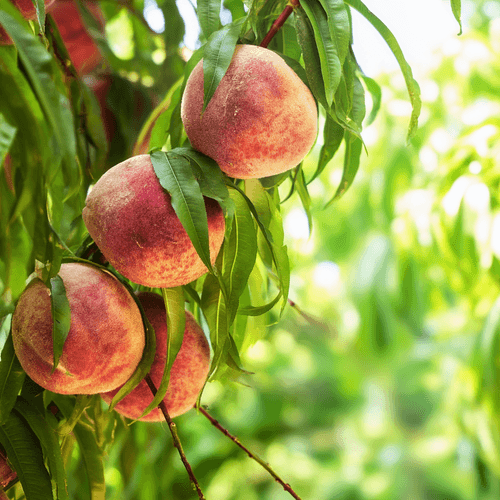Did you know ?
- 1 Georgia is nicknamed the 'Peach State' in the United States.
- 2 A peach tree can live up to 12 years.
- 3 Nectarines are a variety of peaches without the fuzzy skin.

The peach is a sweet and juicy stone fruit native to China. Known for its fuzzy skin and fragrant flesh, peaches are consumed fresh, baked, or preserved. They are rich in vitamins, antioxidants, and dietary fiber.
Did you know ?
View other Stone fruits
Nutrition
| Calories | 58 kcal |
| Proteins | 1g |
| Carbohydrates | 14g |
| of which sugars | 13g |
| Fiber | 2g |
| Fats | 0.4g |
Ripeness
Selection
Storage and ripening
If you bought unripe peaches, here's how to speed up the process :
Health
Origin
Peaches originated in China over 4,000 years ago and were considered symbols of immortality. They spread to Persia (modern-day Iran) via trade routes and later reached Europe through Alexander the Great. Spanish explorers introduced peaches to North America in the 16th century. Today, they are grown worldwide in temperate climates.
Recipes
Gallery
There is no images yet. Submit one now to contribute to the gallery !
F.A.Q
Warnings
Is genetically nearly identical to the peache but has smooth skin.
Smaller with less juice and a more tart flavor.
Generally has smoother skin and different flavor notes.